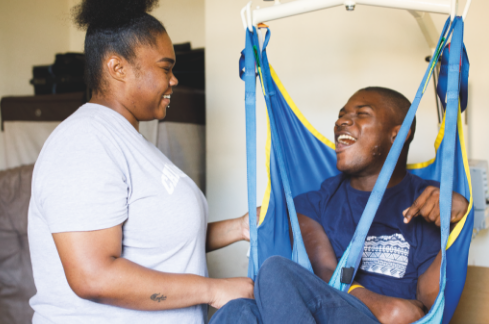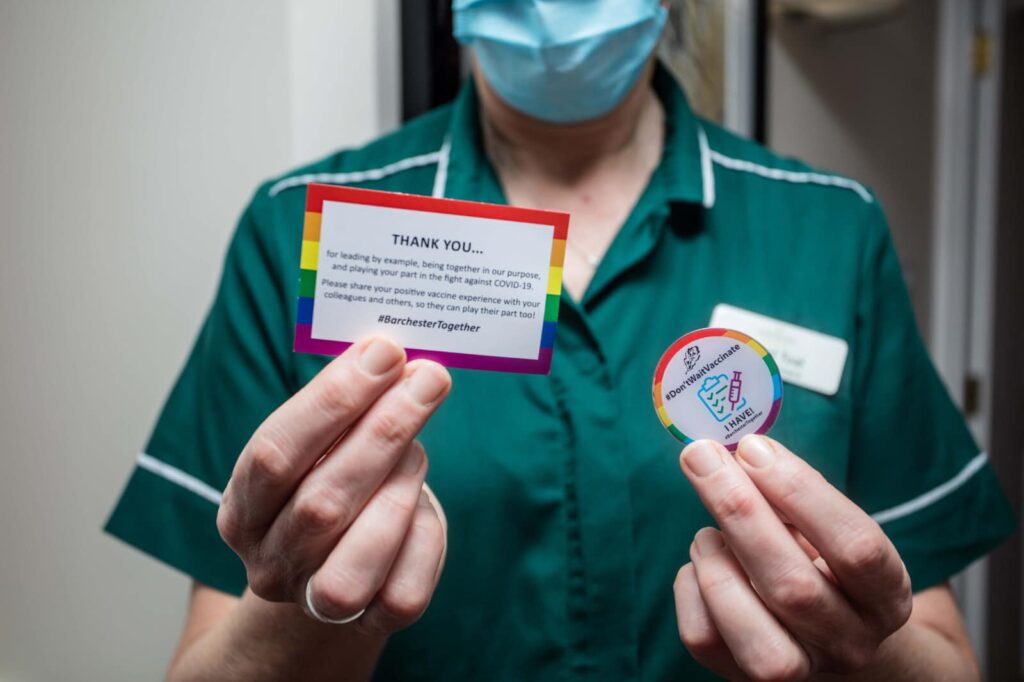Building on the positives
Building on the positives
Happy New Year! I hope every adult social care colleague, carer and those accessing care and support had a lovely Christmas and welcomed in 2026 with rest, reflection and renewed energy.
Happy New Year! I hope every adult social care colleague, carer and those accessing care and support had a lovely Christmas and welcomed in 2026 with rest, reflection and renewed energy.

"My name is Sofija Igonkina, from Latvia. I have been living in England for 15 years. I'm a nurse and I work in Evergreen nursing home in Hastings. I want to share my story about why I had the COVID-19 vaccine and why I'm going to get a booster jab this winter."

As people working in or with the care sector, we all want the best for residents, colleagues and the communities around us. Let’s give them even greater peace of mind by getting vaccinated for flu and COVID-19 and make this the safest, healthiest winter we can.

Millions of eligible people, including care staff, are now being offered a COVID-19 booster vaccine. Natasha Edwards, Registered Manager at Evergreen Care Home, explains why she and her colleagues are fully behind the booster AND the winter flu jab.

When PHE's Dr. Éamonn O'Moore was seeing patients, he knew how crucial it was for all who work directly with vulnerable people to make sure they had a flu jab every year. He felt it was his professional responsibility to protect himself, his colleagues, and those in his care. A new winter vaccination campaign has …

Social care bodies across England have joined together to announce a Social Care Day of Remembrance and Reflection. It will take place, next year, on 22 March and be a day to honour the work of the adult social care workforce and remember those we lost. Chief Nurse for Adult Social Care, Deborah Sturdy, explains …

"As part of the record 36 billion investment to reform the NHS and social care, the Prime Minister’s announcement of at least £500 million funding for the care workforce across three years is very welcome", says Deborah Sturdy, Chief Nurse for Adult Social Care in her new blog marking the Prime Minister's recent announcement on …

The COVID-19 pandemic has presented challenges for many colleagues working in the social care sector, making retention and recruitment more important than ever. Vida Healthcare's Bernadette Mossman explains how she and her colleagues have been encouraging vaccination among their staff.

The thought of receiving the COVID-19 vaccine was a little bit scary to begin with for Cygnet Healthcare's Raf Hamaiza. Like many others, he struggled to make sense of information pouring in from all directions. In this blog, he explains how he found clarity and peace of mind - for himself and his colleagues.

When you have a ‘week’ or ‘month’ concentrating on a theme or a campaign, it can really focus minds. But there’s also the danger that, once the week or month has passed, the issue gets sidelined. Co-production Week, which the Social Care Institute for Excellence (SCIE) ran in early July, got a good conversation going. …

Barchester Healthcare has been working tirelessly, in difficult circumstances, to protect and reassure its colleagues, residents and their relatives about COVID-19 and vaccinations throughout the course of the pandemic. Chief Executive Dr Peter Calveley explains how he and his team worked hard to keep staff updated on the vaccination roll out and allay their concerns …